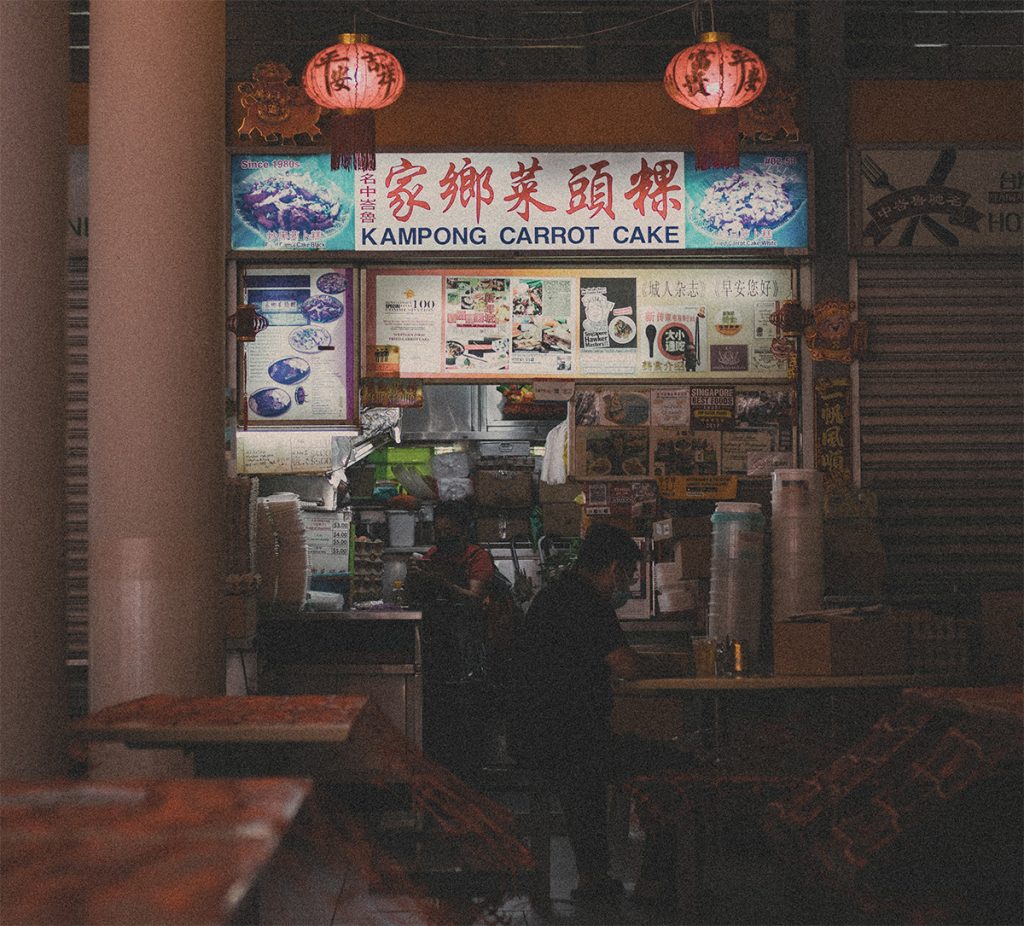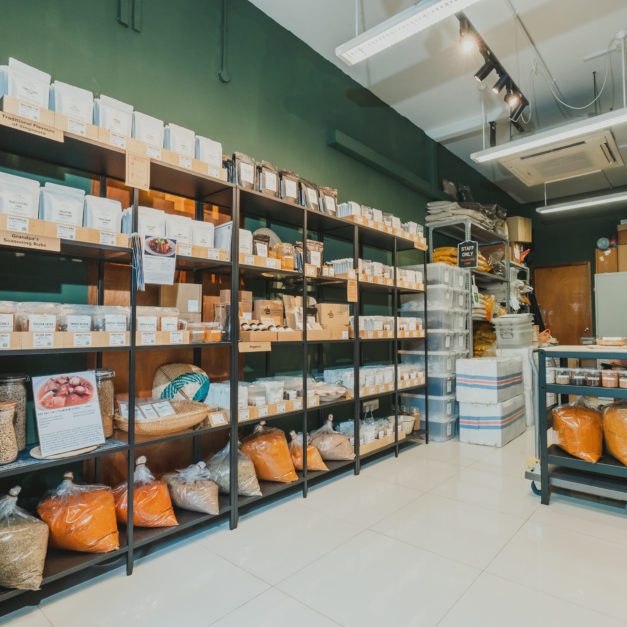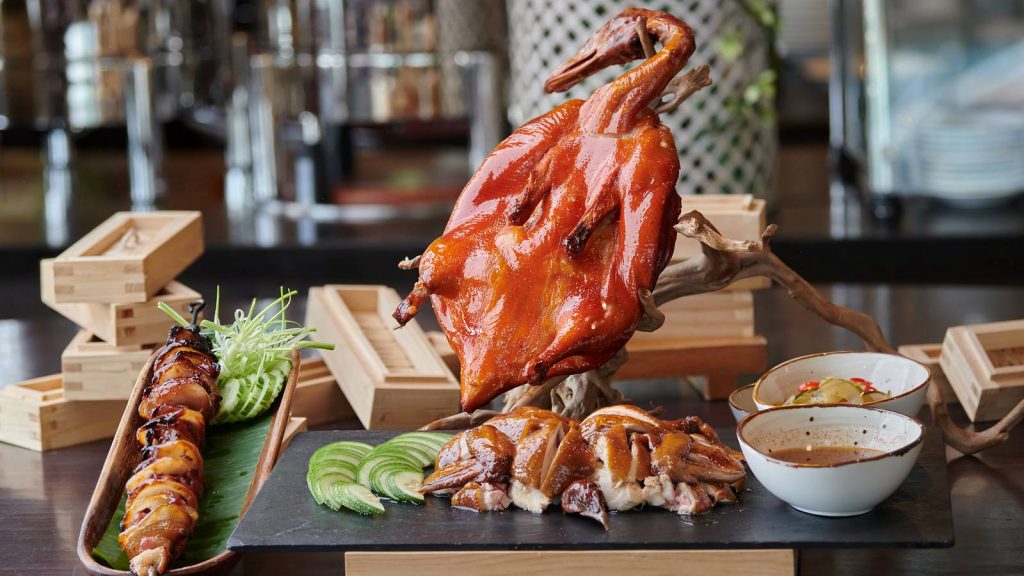Many believe we live in a dog-eat-dog world. On the surface, the domination of large companies over smaller private companies in Singapore’s capitalistic economy seems inevitable. In an economy as complex as a verdant rainforest, bigger trees yearn towards sunny profit up above the canopy, overshadowing flora and fauna underneath. As a result of our highly globalised economy, smaller businesses, typically entrepreneurial and locally-owned, are more susceptible to external risks like the intensity of competition in the market.
Moreover, with the pandemic heavily affecting our economy, small businesses seem to be facing an uphill battle just to survive.
Still, each business can carve out its own space to thrive. After all, plants and animals in the undergrowth persist to bloom. Here, large trees offer protection and shade to those below, rather than stifling them. Each member of the ecosystem can work together to create collective resilience. In our economy, large and small businesses each have its unique, crucial functions as well.

What challenges do small businesses in Singapore face?
From nifty designers selling crafts with a unique cultural flair, to cosy independent bookstores carrying the latest SingLit, to hawkers whipping up local delicacies with a fragrant wok hey. These businesses are quintessentially Singaporean, yet the past year for them has been anything but kind.
Unlike larger conglomerates, it is unlikely for small businesses to be able to lean on huge margins of accumulated profit to weather through our current recession. In relation to that, they may be unable to compete with the low prices that give big firms a further edge during times like these.
The start-stop staccato rhythms of complete and partial lockdowns further pose difficulty to small businesses. As Singaporeans stay home, many small businesses struggle to attract customers to their shops, impacting the livelihoods of business owners and employees.
For instance, locally owned bookstore BooksActually, for years a beloved hipster haunt in Tiong Bahru, had to close its physical store. Hundreds of hawkers have fallen prey to the economic downturn brought about by Covid-19 and can hardly keep their stalls open, even after the government has subsidised rental fees.

While community efforts such as social media advocacy and our initiative Heartland Pays It Forward have been a positive welcome, there remain hurdles for small businesses. In particular, elderly hawkers have struggled to adapt to digital platforms in the era of home delivery. Those who do often see their margins crunched by platform fees, leaving them little choice but to shut their doors.
Is all hope lost for these small businesses? The situation may seem quite jialat, yet with the support of bigger businesses, small businesses can bounce back. Their creative, fiery dynamism will add economic vibrancy, big and small businesses thriving in harmony.
What’s in it for the big businesses to help smaller ones?
With effective strategising within markets, small and large firms can coexist symbiotically, both reaping the gains from well-matched, meaningful collaborations.
Just like how towering trees in a forest rely on the meticulous work of tiny beetles, the value that small businesses bring to big ones is invaluable. Employees of large firms need small businesses near their workplace to provide them with affordable hawker food and salons for grooming, both of which contribute not just to quality of life but productivity as well.
The intangible cultural value that small businesses bring to Singapore can’t go understated either. By supporting local, we prove that entrepreneurship isn’t a pie in the sky to everyday Singaporeans, promoting an entrepreneurial culture, thereby creating an economy in which firms are invested in the community.
This is especially essential for industries whose fortunes are waning. How many of your favourite hawker stalls have closed due to their elderly owners retiring without an heir? By keeping these vulnerable small businesses afloat, we sweeten the deal for the next generation of hawkers to step up.
TripAdvisor has lent this much-needed helping hand in its campaign LoveYourLocalSG, a microsite whose new delivery tool is a lifeline to hawkers. When potential hawkers see that big businesses have got their backs, reducing the risks of a volatile industry, they become more likely to take the leap of faith and enter the market. What that means is more delicious food for all, not to mention the preservation of our hawker culture.

Moreover, small companies that tailor their businesses to a local market bring dynamic innovation, creating healthy competition for larger counterparts. With more focused operations that add unique Singaporean flair to a global market, not only do small businesses create incentive to produce products that cater to Singaporean tastes, but their environmental impact is often more sustainable as well.
Big businesses directly gain from supporting small businesses too. Think back to TripAdvisor’s #LoveYourLocalSG. Given that its business relies on the aggregation of businesses online, more successful small businesses equals more eyeballs drawn to TripAdvisor, equalling higher revenue. It’s a win-win-win situation: TripAdvisor gets more traffic, hawkers sell more plates and consumers get to continue eating the food they know and love.
That isn’t all. Through collaborations with local businesses, big businesses capture a wider, more diverse market demographic. They show themselves to be more personable and authentic––in other words, a company consumers would want to buy from. This isn’t just good for the bottom line; buyers stand to gain as well.
Take a look at Fullerton Hotel, which recently collaborated with next-generation hawkers in a pop-up called Past Meets Future. By offering a delectable spread of true-blue Singaporean grub made by young hawkers, the hotel shows its investment in the Singaporean community, differentiating itself from other flavourless competitors who simply offer a continental menu.

The zesty boldness of young, entrepreneurial businesses helps this differentiation. From presenting a visionary outlook to providing fresh insights into markets, small firms bring much to the table in their partnerships with larger companies. Such long-term relationships allow for a complex, varied network to flourish.
The self-starting passion of smaller business owners can further inspire employees of larger businesses. Unilever Food Solutions’ Vegetarian Butcher worked with social enterprise The Social Kitchen to push out new meat-free alternatives, making eco-friendly dining more accessible. The Social Kitchen’s practice of hiring marginalised persons may also encourage Unilever to do likewise, providing opportunities for those who find work hard to come by.
All this serves to strategically integrate a large business into the community, going beyond profit to create a business that has more sustained market value to Singaporeans. The local community is then given the care it needs to blossom.
Ultimately, size doesn’t matter when we choose to uplift each other for a greater good. Both big and small enterprises are vital to the upkeep of a vibrant, dynamic economy. Instead of persisting in a dog-eat-dog world, the “big dogs” can lend a helping paw. Let’s make ours a dog-help-dog economy instead!
Company of Good connects organisations to do good strategically, sustainably and impactfully. Find out how your company can get involved at www.thecompanyofgood.sg/.




















